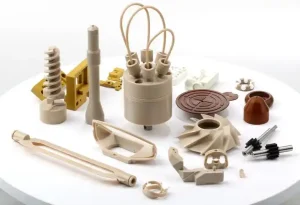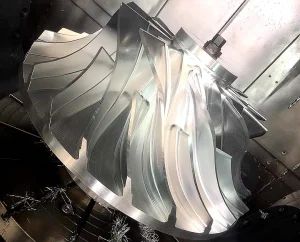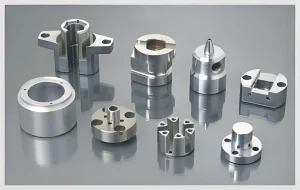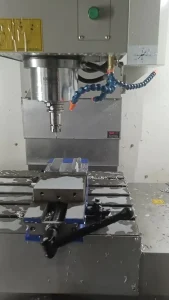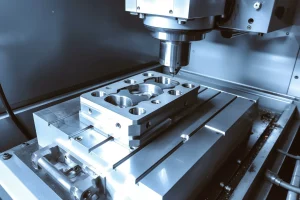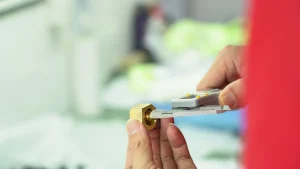Introduction:
Teflon, a brand name for polytetrafluoroethylene (PTFE), has gained widespread popularity in the machining industry due to its exceptional properties. Known for its high chemical resistance, low friction, and thermal stability, Teflon is a go-to material for a variety of machining applications. In this article, we will explore how Teflon materials are used in the machining industry, highlighting their benefits and providing detailed insights into their diverse applications.
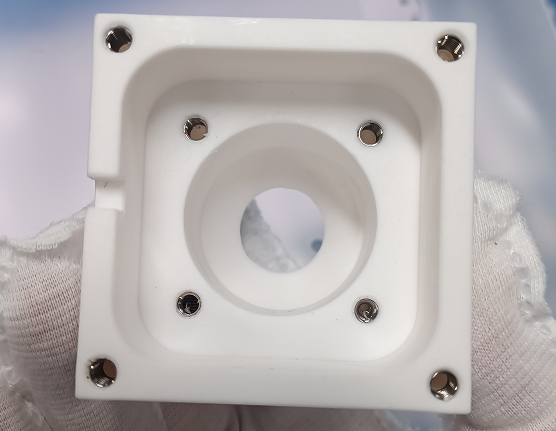
1. Introduction to Teflon and Its Properties
Teflon, chemically known as polytetrafluoroethylene (PTFE), is a synthetic polymer that is best known for its low friction and non-stick properties. It was first discovered by Dr. Roy Plunkett in 1938 and has since become one of the most versatile materials in the world.
Teflon’s most significant properties include:
- Non-stick surface: It is highly resistant to adhesion, making it ideal for use in applications where materials need to slide against each other with minimal friction.
- Chemical resistance: Teflon can withstand exposure to most chemicals, acids, and solvents without degrading.
- Thermal stability: Teflon remains stable across a wide range of temperatures, from -200°C to +260°C.
- Electrical insulator: It also functions as an excellent insulator, making it ideal for electrical applications.
2. Teflon in Precision Machining
In the machining industry, precision machining refers to processes like CNC machining and injection molding, where high levels of accuracy are required. Teflon is widely used in these applications due to its ability to maintain structural integrity under stress and heat, while also offering low friction for smooth movement.
CNC Machining
In CNC machining, Teflon is often used for creating parts that need to maintain precise tolerances. Its low friction and wear resistance make it a popular choice for parts that come into frequent contact with other components. Some examples include:
- Bushings and bearings
- Seals and gaskets
- Valve seats
These parts benefit from Teflon’s smooth surface and durability, reducing the need for frequent maintenance and replacements.
Injection Molding
Teflon is also a favored material in injection molding processes. The material’s low viscosity when melted allows it to flow smoothly into molds, creating parts with high precision. Teflon injection molded parts are used in a variety of industries, including aerospace, automotive, and medical devices.
3. Applications in Aerospace
The aerospace industry demands high-performance materials that can withstand extreme conditions, including high pressure, temperature variations, and exposure to harsh chemicals. Teflon is commonly used in:
Fuel System Components
In aerospace applications, Teflon is used in fuel system components like hoses and seals. Its ability to resist chemicals, as well as high and low temperatures, makes it ideal for these applications, ensuring safety and reliability.
Seals and Gaskets
Teflon’s non-stick properties and chemical resistance make it an ideal material for seals and gaskets in engines and other aircraft components. These seals are crucial in preventing fuel leaks and ensuring proper functionality under extreme conditions.
4. Teflon in Automotive Manufacturing
The automotive industry also benefits from the unique properties of Teflon, especially in applications requiring friction reduction, durability, and chemical resistance.
Bearings and Bushings
Teflon is often used in bearings and bushings that need to withstand high loads, friction, and temperature fluctuations. Teflon-coated components help reduce wear and tear, increasing the lifespan of automotive parts.
Gaskets and Seals
In gaskets and seals, Teflon provides a reliable solution for preventing leaks in engines, exhaust systems, and other critical parts. Its chemical resistance ensures that it remains intact even in the presence of oils, fuels, and coolants.
5. Teflon in Chemical Processing
The chemical processing industry uses Teflon extensively due to its resistance to corrosive substances and its thermal stability.
Chemical Pumps and Valves
Teflon is used in pumps and valves for handling aggressive chemicals and corrosive fluids. The material’s resistance to almost all chemicals ensures long-lasting components that can perform in harsh environments without degradation.
Linings for Tanks and Pipes
In the chemical industry, Teflon-lined tanks and pipes are common. These linings protect the underlying materials from corrosion, prolonging the lifespan of tanks, pipes, and reactors used in the processing of chemicals.
6. Teflon in Electrical and Electronics
Teflon’s electrical insulation properties make it an essential material in the electronics and electrical industries.
Insulation in Wires and Cables
Teflon is widely used as insulation for wires and cables in electrical systems, especially in high-temperature applications such as power transmission lines and military equipment.
Components for High-Voltage Equipment
Teflon is also used in the manufacture of components for high-voltage equipment, where its insulating properties and resistance to heat and chemicals are essential for safe operation.
7. Benefits of Teflon in the Machining Industry
The benefits of Teflon materials in the machining industry are numerous:
- Enhanced Durability and Longevity: Teflon’s chemical and thermal stability help increase the lifespan of parts.
- Reduced Friction and Wear: Its low friction makes it ideal for reducing wear in moving components.
- Resistance to Harsh Chemicals and High Temperatures: Teflon can handle extreme environments, making it suitable for industries like aerospace, automotive, and chemical processing.
8. Challenges in Machining Teflon Materials
Despite its benefits, machining Teflon can present some challenges:
- Brittleness: Teflon can be brittle, making it susceptible to cracking under certain conditions.
- Cost: Teflon can be more expensive compared to other materials.
- Machining Difficulties: Due to its soft nature, Teflon can be difficult to machine, requiring specialized tools and techniques.
9. Conclusion
Teflon materials have proven to be indispensable in the machining industry due to their unique combination of properties like low friction, chemical resistance, and thermal stability. From aerospace to automotive to chemical processing, Teflon plays a critical role in enhancing the performance and durability of parts and components. Despite some challenges in machining, the benefits far outweigh the drawbacks, making Teflon an essential material for high-performance industries.

